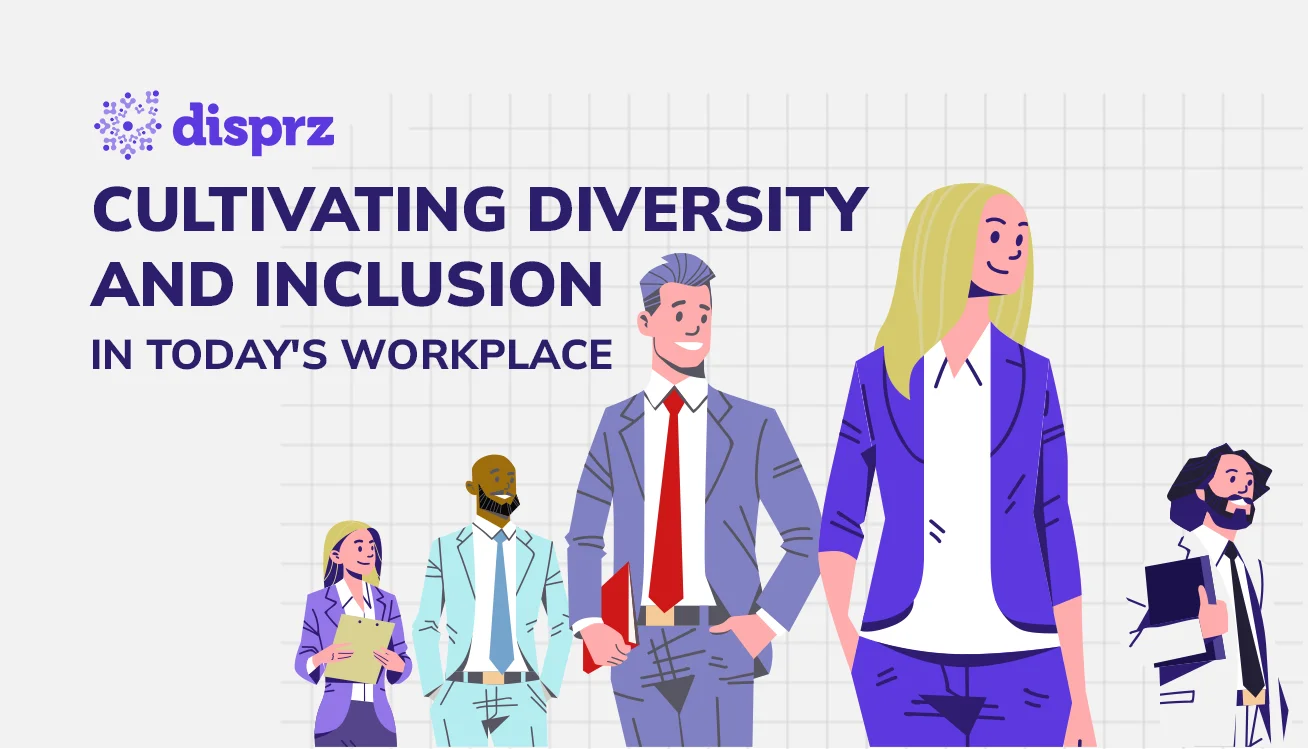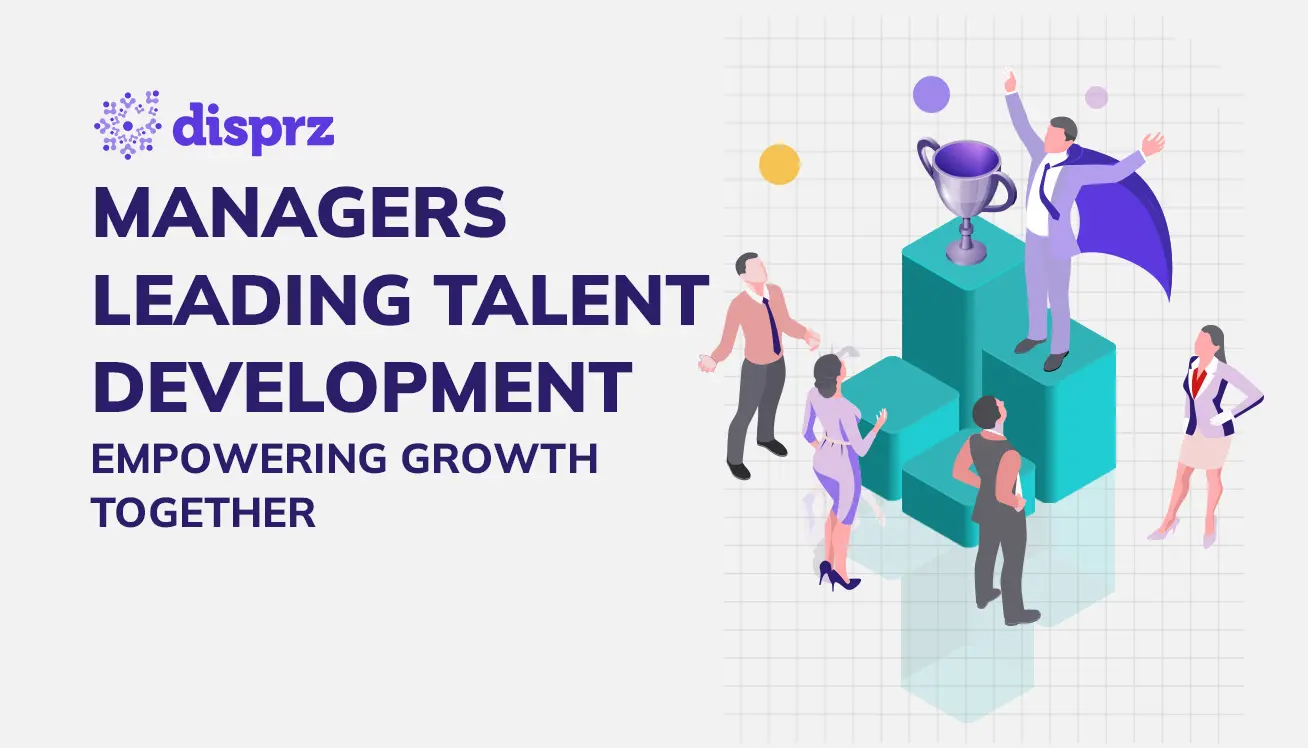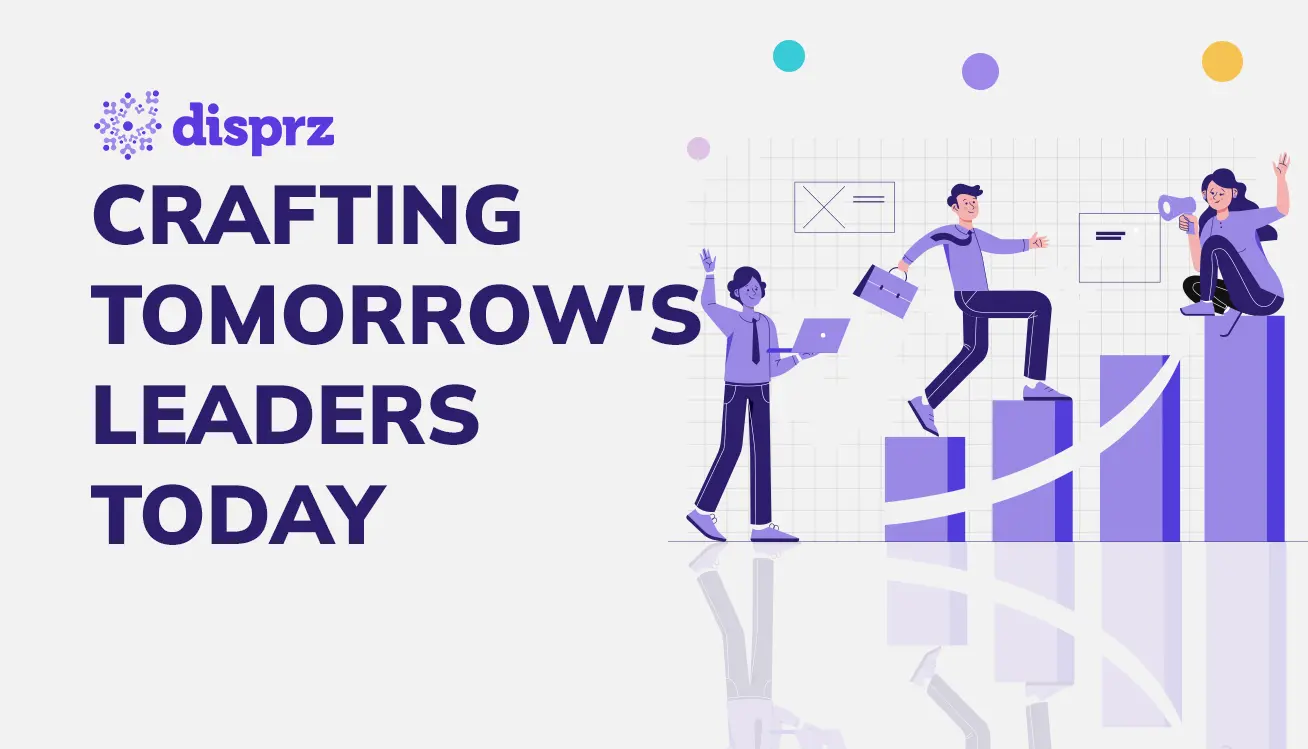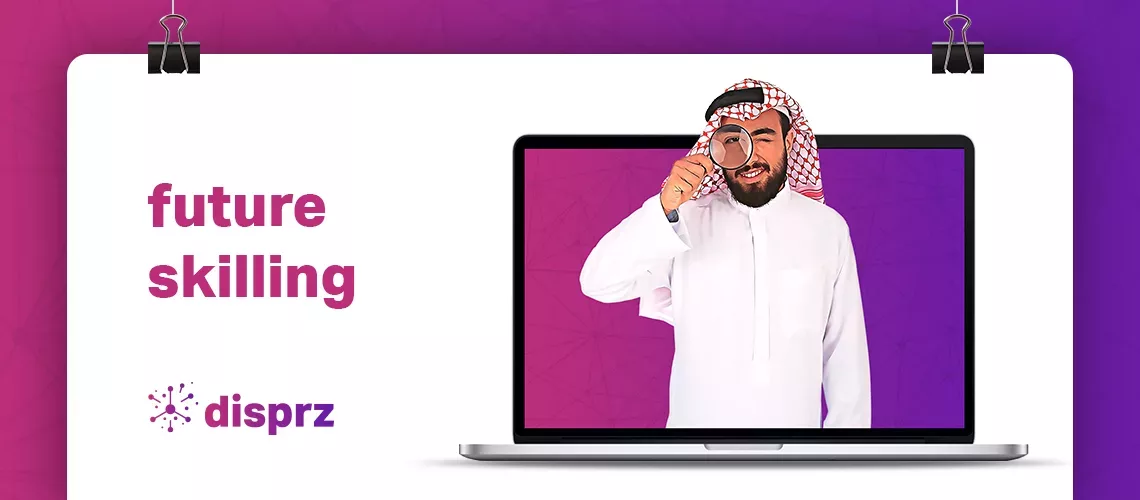
6 min read
• 17 Oct 2023
The next big focus for the Middle East – building a future – ready workforce
Building a future-ready workforce is crucial in the fast-changing Middle East’s business market. Here are effective tips to build the team which is future-ready.
-
eBookEmployee Upskilling - A Detailed Blueprint For Building A Skills-Driven Learning Culture
Like many countries, COVID-19 has left an indelible mark on the Middle East. Moreover, it has been blended with the digital acceleration that posed more challenges in Bahrain, Kuwait, Oman, Qatar, UAE, Saudi Arabi, etc.
Being the early adopter of digital technology, the Middle East is renowned for staying ahead in innovation and progress. However, to be the frontrunner, the Middle Eastern countries need to build a future-ready workforce. Skill development is becoming crucial to gain access to employees’ full potential.
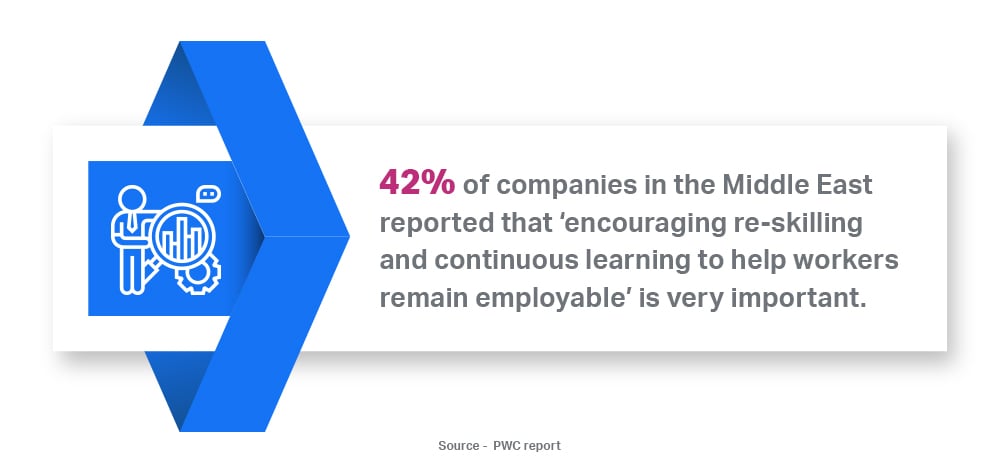
Building future-ready talent takes flight amidst growing digitalization
Over the last few years, the economies of leading countries in the Middle East have taken strides towards digital transformation. The Middle East is on the path of turning into a power-packed digital economy. However, the skill gap crisis and the talent crisis in the middle eastern countries can hinder this path. Therefore future skilling for the digital economy has become the need of the hour.
Most Middle-eastern region Governments have taken big steps to equip and empower the future-ready workforce. For instance, The Government of UAE introduced a National program for coders that aims to make the UAE the world’s foremost destination for coders and future innovators.
The MCIT (Ministry of Communications ad Information Technology) of Suadi Arabia launched future skills programs to provide intensive training in digital areas.
UAE has come up with the Centennial 2071 plan that aims at investing in the future generation to equip them with the knowledge and skills needed to address rapid changes
UAE Government has also partnered with LinkedIn to roll out a skills programme for Emirati women.
“Focusing on future skills is a top priority for the UAE government amid the changing employment landscape, where constant upskilling and reskilling are necessary to keep pace with the growing disruptions caused by technology across all sectors”, quoted Ohoud Al Roumi, Minister of State for Governmental Development and Future
Even companies across the Middle East need to take initiatives to upskill and make the employees future-ready.
Five approaches to future skilling for the digital economy
Building a future-ready workforce is crucial for a company’s survival in the fast-changing Middle East’s business market.
Here are five effective ways for future skilling to prepare your employees for the digital economy
Focus on learning agility to build a sustainable workforce
Learning agility can play a significant role in building a future-ready talent. Agile employees can respond to challenges more quickly and efficiently. They develop effective behaviours and keep pace with changing situations.
46% of Middle Eastern organisations felt that ability to adjust the workforce in response to market changes is very important,
Learning agility has a positive impact on the workforce and the company’s success.
Agile learners aren’t afraid of taking risks or challenges. Learning agility helps the future-ready workforce develop a mindset that propels them to seek challenges, ask for feedback, ponder over shortcomings, improve and grow.
To know more about learning agility, refer to the blog – What is Learning Agility and Why Organizations Need to Focus on It
Look at skilling through the personalization lens
One size doesn’t fit all. Different employees have different learning needs. Moreover, employees in the Middle East are struggling to adapt to digitisation. Each employee has different digital skill gaps. So, it is important to take a personalised learning approach to address unique learning needs.
91% of L&D professionals strongly agreed that personalised learning improved the link between learning and organisation performance.
A modern solution like LXP platform can help you personalise learning for future skilling for the digital economy. It helps in amplifying learning through personalised learning. It provides AI-based recommendations based on the employee’s job role, interest, and learning history. Such recommendations facilitate continuous learning that helps in creating a future-ready talent.
Dig deeper for identifying future skills
It is pivotal to develop the capabilities and skills needed to successfully execute the company’s strategy over the next few years. Moreover, the Middle East is moving towards a digital economy quickly, and by building future skills, you can contribute to this mission.
Through role-based skilling in a learning solution like disprz, you can discover trending skills to make your employees future-ready. It helps you map and benchmark the role-based functional, leadership, digital & meta-skills across 40 industries and 2000+ job roles.
See a preview to discover how disprz role-based skilling can help you identify current and future skills for different job roles in your organization.
Strategically place learning in the flow of work
A future-ready workforce is strongly rooted in a culture of continuous learning that is smoothly embedded into the flow of work. Through mobile learning, you can make training and skilling a part of employees’ everyday routines.
Mobile learning improves productivity by 43%
Mobile learning adds flexibility to future skilling. Employe can access learning material at any hour of the day to expand their capabilities and learn new skills. Moreover, the bite-sized content doesn’t consume much time, so it often increases the adoption rate. It is one of the best ways to fill the digital skill gap and keep employees updated.
Modernise learning to respond to constant change
Building a future-ready workforce requires a modern learning approach. Obsolete techniques won’t help address modern learning needs.
Learning must be adjusted in response to the trending changes in the industry and country. It is important to adopt new strategies that put learning right into the point of need. Keep assessing your learning strategies and upgrading them in real-time to empower your employees to face every challenge confidently.
Conclusion
The digital economy is at the forefront for both Middle and North Africa (MENA). To capitalise on every opportunity business new to address the skill gap crisis to shape the future of the economy. Through an LMS+ you provide continuous learning to fill the skill gap. You can ever take a step ahead and focus on next level skilling through an LXP platform. Whatever you choose, it is pivotal to modernise your learning continuously to build future-ready talent.
One of Oman’s leading banks changed its training approach and embraced online learning to make their employees future-ready. This helped them disseminate uninterrupted and faster knowledge through self-paced learning. It even helped them increase adoption and reduce L&D costs.
Click here to check out the full case study that proves a little change in the learning approach can help reap many benefits.

About the author

Debashree Patnaik
Debashree is a seasoned content strategist at Disprz.ai, specializing in enterprise learning and skilling. With diverse experience in B2B and B2C sectors, including ed tech, she leads the creation of our Purple papers, driving thought leadership. Her focus on generative AI, skilling, and learning reflects her commitment to innovation. With over 6 years of content management expertise, Debashree holds a degree in Aeronautical Engineering and seamlessly combines technical knowledge with compelling storytelling to inspire change and drive engagement.
More Resources
4 min read
• 15 Apr 2024
Unlocking the Power of Managerial Engagement in Talent Development
4 min read
• 09 Apr 2024
Nurturing Excellence in Building Leadership Pipelines
Sign up to get free resources and stay up to date with Disprz!
Discover how Disprz can align learning and upskilling with your desired business outcomes.



